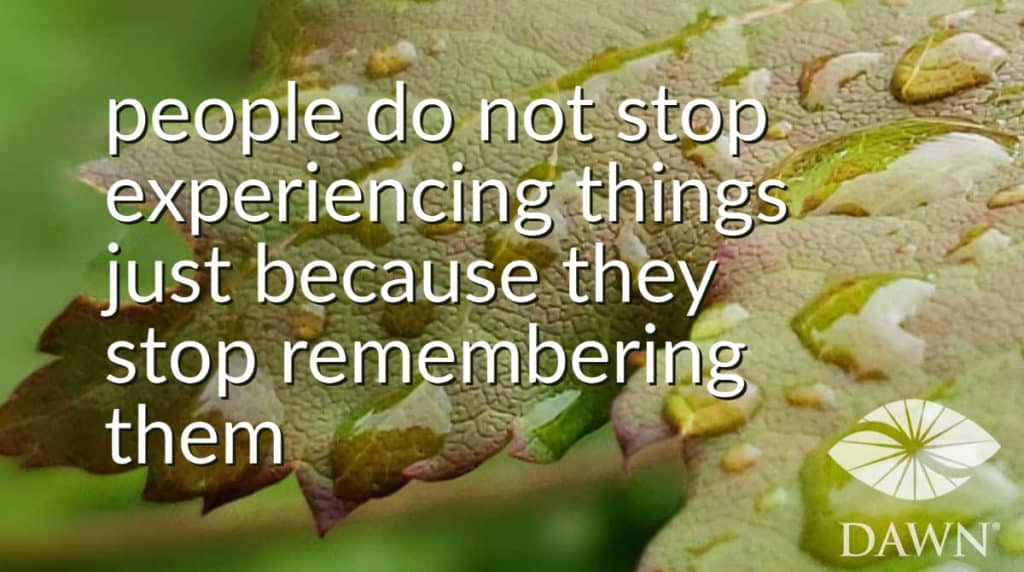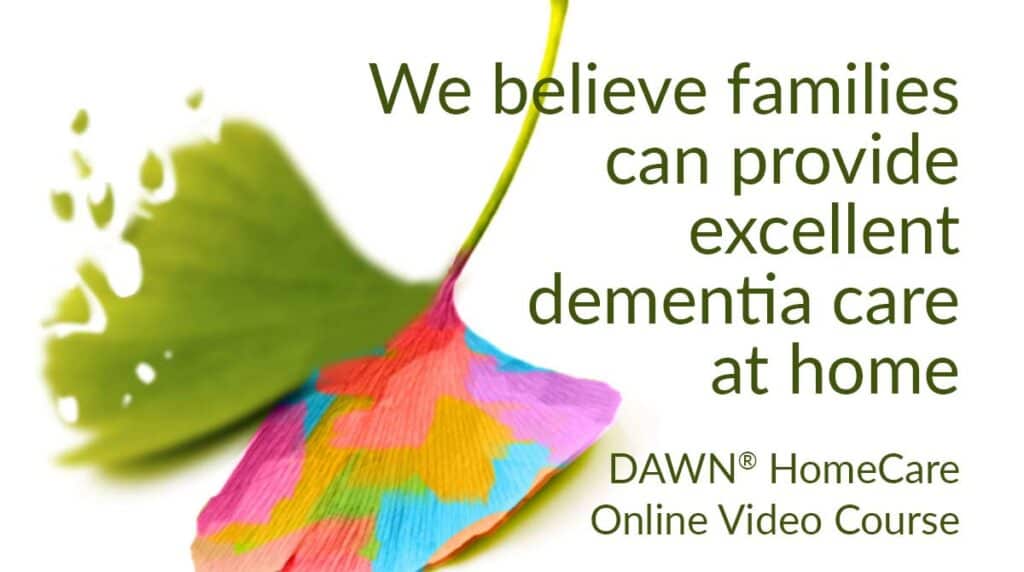In his book Thinking, Fast and Slow, Daniel Kahneman explains the existence of our experiential and remembering selves. While reading it, I remember waking in the middle of the night with the realization that this concept explained so much about my clients’ moods and interactions: that they were fully experiencing the present and reacting to their experiences—even though they could not recall or recount what they’d experienced even moments earlier. It took me two weeks to muster the courage to send an email to Dr. Kahneman, asking his opinion, but I finally hit send on a Friday evening. Not three hours later he replied, ever so graciously, saying that he believed I was correct although he was not an expert on dementia.
Dr. Kahneman may not have been an expert on dementia, but he was an expert on human behavior. Grasping this concept (that the part of us that experiences the present remains intact) will greatly enhance your success in partnering with your loved one as you walk the dementia journey together.
The concept of our experiential and remembering selves parallels that of our two types of thinking processes, which Dr. Kahneman also discusses in his book. He recounts that all of us have both rational and intuitive thought processes, and that some of us prefer using rational thought while others are more comfortable with their intuitive processes. He explains that our rational thinking skills are secondary—a set of tools that help us process limited information—while our intuitive (primary) thinking skills receive the big picture: the unfiltered and complete whole of our experiences.
Regardless of our earlier preferences, experiencing dementia forces us to live in the intuitive world and become dependent on others to help us perform tasks that require rational thinking (skills such as sequencing and planning and initiating action). When we have care partners who understand and support the skills we lose, we begin to feel safe again. Enjoying contentment and wellbeing becomes possible—via our experiential selves in the present.
Dr. Kahneman explained our two selves by using vacation preferences as an example. He pointed out that some people select and take vacations for the purpose of enjoying new experiences, while other people choose vacations that are repetitions of previously enjoyed destinations. The former are so busy with new experiences that they might forget to take pictures at all, while the latter typically have full photo albums to enjoy once home again. We each prefer one or the other, but in dementia our remembering selves fade with our memories while our experiential selves remain.
What this means for dementia care partners
Have you ever been with someone experiencing dementia and heard a care provider say something dismissively or with sarcasm, or seen someone perform a task brusquely or without courtesy? I have, far too often. And, if questioned, the excuse is: “They won’t remember anyway.” I cringe when I hear and see someone being treated as if they are not present, not experiencing the moment fully, and not enduring what is being done to them.

Even when we become unable to recount what has just happened to us, we go through the experience. Dr. Kahneman tells us that the psychological ‘present’ is about three seconds. We lose the past to dementia when we lose our memory skills, not the present. We lose the future to dementia when we lose our rational thinking skills, not the present. The physical and emotional pain caused by callus treatment and statements occurs in the present.
Our moods and actions are expressions of what we experience, not symptoms of a diagnosis—regardless of whether we can use language or recall or rational thinking skills. Safeguard your loved one’s experience of the present. Doing so will pay dividends in positive moods and companionship; but, more importantly, not doing so is disrespectful and unkind.
At DAWN, we believe families can provide excellent dementia care at home. We simply need to understand the strengths we keep and the skills we lose, and how that makes us feel.
§

Sign up for our newsletter and free video series
Sign up for our monthly newsletter and get more advice on how to help someone experiencing dementia. As a bonus, you’ll get our free video series, “Preparing for Dementia.”

